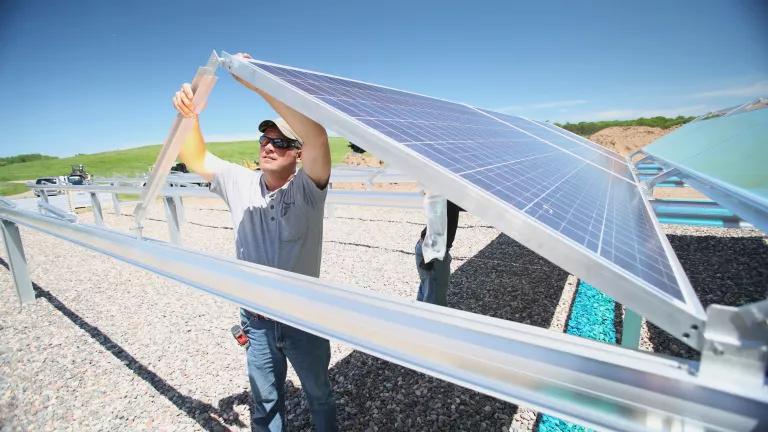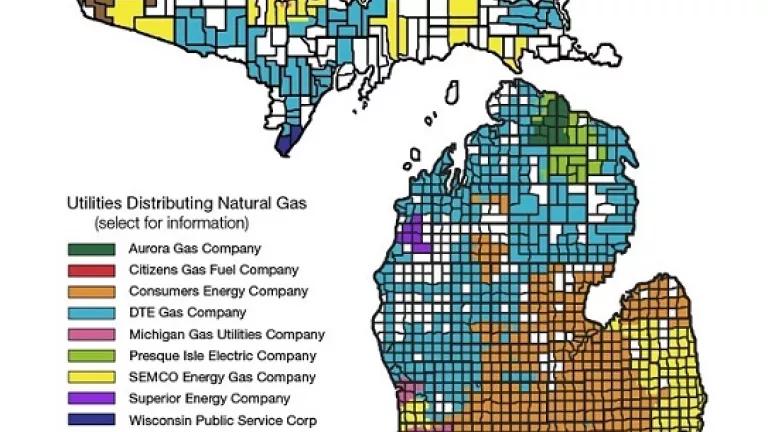We are glad to see that Governor Snyder, in his recent message Ensuring our Future: Energy and the Environment, acknowledges the significant public concerns around the impacts of hydraulic fracturing (or “fracking”) for natural gas and oil on the environment and public health. We agree with Governor Snyder that scientific analysis should drive the treatment of hydraulic fracturing in Michigan, and look forward to working with the state and the University of Michigan in their evaluation of fracking.
To that end, we’d like to point the agencies and University to a number of scientific analyses of fracking operations already undertaken by reputable scientific bodies:
- Recent studies document the pathways through which contaminants can migrate as a result of fracking, and in one instance actual aquifer contamination is identified as likely caused by fracking. (S.G. Osborna, A. Vengoshb, N. R. Warnerb, R. B. Jackson, “Methane contamination of drinking water accompanying gas-well drilling and hydraulic fracturing,” PNAS 108: 8172–8176 (2011); .T. Myers, “Potential Contaminant Pathways from Hydraulically Fractured Shale to Aquifers,” Ground Water. doi: 10.1111/j.1745-6584.2012.00933.x.; EPA Office of Research and Development, Investigation of Ground Water Contamination Near Pavillion, Wyoming)
- Well-understood events can happen during the fracking process that in turn would result in water contamination. Many of these events have in practice resulted in methane intrusion, including from (a) drilling and well construction errors (PA DEP consent decree; McMahon, P.B., Thomas, J.C., and Hunt, A.G., 2011, Use of diverse geochemical data sets to determine sources and sinks of nitrate and methane in groundwater, Garfield County, Colorado, 2009; U.S. Geological Survey Scientific Investigations Report 2010–5215; ODNR Report), and (b) fracking in areas where natural fractures and faults may cause complications that can result in well integrity problems (T. Myers, supra; URS Corporation, 2006, Phase I hydrogeologic characterization of the Mamm Creek Field area in Garfield County: Prepared for the Board of County Commissioners, Garfield County, Colorado)
- Methane intrusion can and does contaminate drinking water, causing combustion risks. (S.G. Osborne et al.; PA DEP consent decree; ODNR Report)
- Fracking narrowly defined as consisting of fracturing rock and injection of fluids is necessarily accompanied by a number of other operations, most notably transportation, storage, and disposal of chemical injection fluids and wastes. There are multiple incontrovertible incidents of contamination resulting from accidents and/or aspects of the process other than drilling. (gas well blow out; poor pressure management and spilled fracking fluid; contamination of surface water from leaking and overflowing wastewater pits)
Moreover, there are some common sense legal protections that we know right now are needed, and that need not await an opinion by a scientific panel. In keeping with the principles of participatory democracy that undergird our system of government, citizens must be given meaningful opportunities to be involved in rulemaking, permitting, and enforcement actions regarding natural gas and oil facilities that will affect their communities. Additionally, communities must be allowed to exercise their longstanding oversight of land use, water safety, and other public health protections to ensure public health and safety around fracking operations. No special carve outs should be given to this industry, especially considering the risks described above and the sheer scale of increased operations that are likely to be seen in the coming years in Michigan.
Finally, it is essential for the health, safety and well-being of the people of Michigan that the role and presence of citizen voices and participation more broadly be properly protected in Michigan law. We are seeing coordinated efforts around the country to close off citizens’ participation and ability to represent and defend their interests, from refusals to disclose critical information to gag orders on doctors to constrained access to the courts. Such curtailments of basic citizen rights must not be allowed in Michigan. Rather, an open, transparent, accessible system, enforceable by the public, must exist to protect citizens.
In sum, Michigan needs a robust, scientifically up-to-date and forward-looking regulatory scheme for fracking that fully ensures protection of communities and the role of citizens in representing the peoples’ interests – and the sooner the better.


